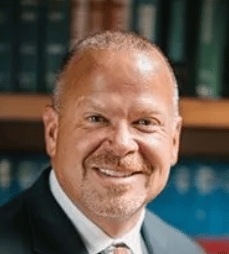 COVID-19 is a public health crisis that affects all of us. However, there are some vulnerable populations this pandemic may impact more than others, and that includes the part of our community that has addictions to drugs and alcohol. These individuals face unique challenges that can put them in at-risk situations for contracting and spreading the coronavirus, which can mean a lack of access to valuable, even lifesaving, healthcare and social services.
COVID-19 is a public health crisis that affects all of us. However, there are some vulnerable populations this pandemic may impact more than others, and that includes the part of our community that has addictions to drugs and alcohol. These individuals face unique challenges that can put them in at-risk situations for contracting and spreading the coronavirus, which can mean a lack of access to valuable, even lifesaving, healthcare and social services.
A recent article in the Tennessean illustrated this in a tragic, real-life account. Clay Cronic, 26, of Nashville, died of an overdose on March 24 after his drug recovery group was forced to stop meeting due to coronavirus social distancing rules. Clay’s father Mike told the paper that his son had been off drugs and recently laid off from his restaurant job.
He added, “There are many other people who across the country who’ve lost jobs, they’ve lost their support, and they feel like they have no reason not to go back to drugs. When they’re counting deaths of COVID-19, overdose deaths are not included. But they’re just as real.”
Another worry is that with statewide lockdowns, addicts may engage in risky or criminal behaviors in order to satisfy their physical addiction. “If you’re a person addicted to an opioid, and you cannot find drugs, you get desperate and you do very risky behaviors,” says Dr. Nora Volkow, the director of the government’s National Institute on Drug Abuse. “I mean, that is likely to be one of the consequences of people that need that drug – so the body’s experienced it as a need so if they don’t get it, they’ll actually consume something that otherwise they wouldn’t have if they had choices.”
Experts and psychologists have a number of recommendations for finding support and staying connected during these difficult times:
- If you have serious substance abuse or alcohol issues, do not attempt to detox or go cold turkey without medical supervision
- Communicate with the people you live with, and set ground rules regarding alcohol and drug use during quarantine
- Consider creating your own private online support meetings with only people you know and trust
- Schedule a quick check-in via FaceTime or other videocall each day with a sponsor or a loved one
- If possible, meet outside in a small group, observing social distancing
National groups like Alcoholics Anonymous and Narcotics Anonymous have also set up nationwide remote recovery meetings, and Unity Recovery offers a variety of remote support groups a day.
If you think you have a problem with substance abuse, you can get help in Tennessee 24 hours a day, seven days a week by calling the Tennessee REDLINE at 800-889-9789.
At Delius & McKenzie, PLLC, we understand that we’re all in this together. Our first priority is protecting the citizens of Tennessee. We fight for clients in Sevierville, Seymour, Gatlinburg, Pigeon Forge, and the surrounding Tennessee locations. To schedule a consultation, call us at 865-428-8780 or fill out our contact form to review your case.

Attorney Bryan E. Delius was born and raised in Sevier County, TN. He founded Delius & McKenzie more than 20 years ago, after receiving his JD from the University of Tennessee at Knoxville. He is admitted in Tennessee and in several federal court systems. Learn more about Bryan E. Delius.




